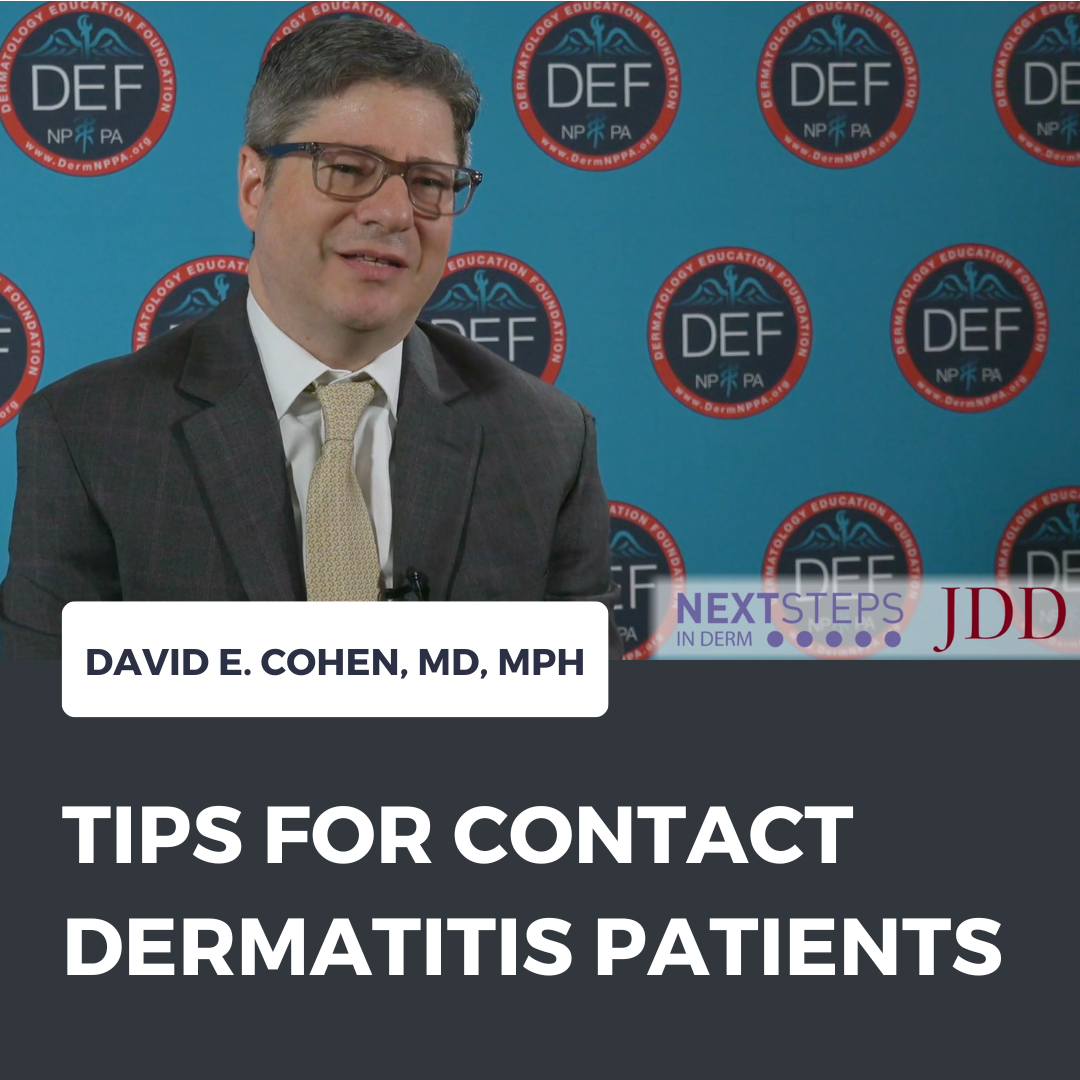Next Steps in Derm and the Journal of Drugs in Dermatology, in partnership with the Dermatology Education Foundation (DEF) and Physicians Resources, interviewed Dr. David E. Cohen (Charles C. and Dorothea E. Harris Professor of Dermatology, Ronald O. Perelman Department of Dermatology at NYU Grossman School of Medicine) on patch testing for allergic contact dermatitis in atopic dermatitis patients and the medications that can influence test results.
Dr. David Cohen lectured on this and other topics at the recent DERM2O22 NP/PA CME conference held July 28-31, 2022.
Further Reading
If you want to read more about allergic contact dermatitis, check out the following articles published in the Journal of Drugs in Dermatology:
Chromate-Induced Allergic Contact Dermatitis Treated With Dupilumab
ABSTRACT
Chromate causes persistent, difficult to treat irritant and allergic contact dermatitis in cement-handling occupational workers. When therapeutics such as topical corticosteroids, topical calcineurin inhibitors, phototherapy and immune-modulating treatments like methotrexate fail, many patients are advised that avoidance may be the only remaining option – an option that may be particularly challenging if the patient’s occupation necessitates chromate exposure. We report a case of severe chromate-induced allergic contact dermatitis in a 55-year-old cement mason that presented to the outpatient dermatology clinic with multiple scaly, erythematous, >5 cm plaques scattered over the skin of his hands, head and neck. After a prior failed course of treatment with high potency topical corticosteroid, this patient was successfully treated with dupilumab. Given the success of dupilumab in our patient, we propose the consideration of dupilumab as an alternative treatment option for those suffering from chromate-induced allergic contact dermatitis that is refractory to ultra-high potency topical corticosteroids. Read the full case report here.
J Drugs Dermatol. 2021;20(12):1340-1342. doi:10.36849/JDD.6246
ABSTRACT
Lanolin alcohol is a high cholesterol containing naturally derived material used as a skin protectant in wound healing petrolatum-based ointments. It is a highly purified fraction of lanolin wool wax that has been identified as a possible cause of allergic contact dermatitis. This 3-center study enrolled 499 subjects who underwent a variety of in-office surgical procedures followed by application of a wound healing ointment containing lanolin alcohol without antibiotics. No allergic contact dermatitis was identified in the 499 subjects who completed the study. The lack of allergic contact dermatitis observed may be due to the proprietary highly purified lanolin alcohol utilized in the study formulation. This is not the lanolin alcohol preparation found on the standard dermatology patch test tray. Not all lanolin alcohols are equal. This is an important consideration when examining the reported incidence of allergic contact dermatitis to lanolin alcohol and the absence of allergic contact dermatitis demonstrated in this research. Read the full article here.
J Drugs Dermatol. 2019;18(10):1002-1004.
Did you enjoy these video pearls? Find more here.

